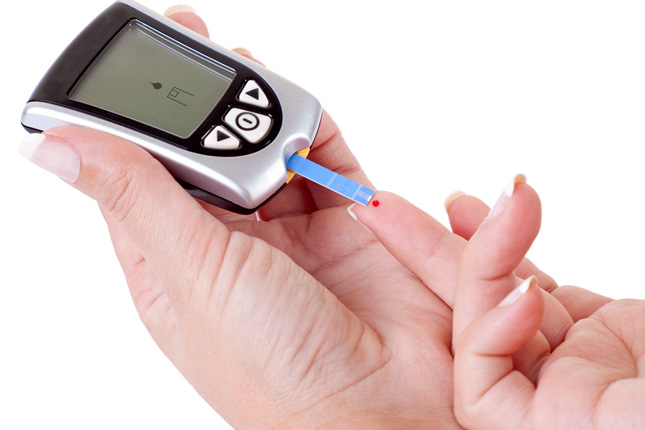Preggie Pals
The Truth About Gestational Diabetes
Please be advised, this transcription was performed from a company independent of New Mommy Media, LLC. As such, translation was required which may alter the accuracy of the transcription.
[00:00:03]
Dr. Douglas Fenton About 18% of pregnant women in the United States develop Gestational Diabetes. So what is it? How does it affect you and your baby during pregnancy? Can it impact your labor and delivery? I’m Dr. Douglas Fenton, an OB/GYN, with Scripts Health and this is Preggie Pals, Episode 3.
[Theme Song/Intro]
Sunny Gault: Welcome to Preggie Pals broadcasting from the Birth Education Center of San Diego, Am your host Sunny Gault. Thanks so much for joining us. Preggie Pals is all about our listeners. You can visit our website at https://www.preggiepals.com for more information on how you can become part of our show. You can join our conversation by following us on Face book, Twitter and Google Plus. And you can also send us comments or suggestions through the contact link on our website or call the Preggie Pals hotline at 619-866-4775. Ok, I’m joined by three other pregnant women here in the studio. I’m 34 years old; I’m a Web video host and producer. My due date is…, ok, two dates April 28th is my due date but Am having a C-section which is currently scheduled for April 23rd. This is going to be a little boy. I already have a little boy at home and so this is my second. Go ahead Rachele.
Rachele DeMeo: Hi my name is Rachele, I teach college part time. My due date is June 23rd, and we are expecting a boy. It’s my second child. I already have a little boy at home as well and we are planning for a vaginal hospital birth.
Amy Barnes: My name is Amy. I’m 35. I’m a stay at home mom, with a due date of July 1st. It’s a little boy, and we have a daughter at home.
Cherri Christiansen: And I’m Cherri, I work in Market Research and Am due with my first baby on the 20th June and we are waiting till then to find out if it’s a girl or boy for the big surprise and we are planning on having a home birth.
[Music]
[Featured Segment: Preparing to Breastfeed]
Sunny Gault: Before we start today’s show, here are some great tips as you prepare for breastfeeding.
Robin Kaplan: Hi Preggie Pals listeners, I’m Robin Kaplan an International Board Certified Lactation consultant, owner of the San Diego Breastfeeding Center and a host and producer of Preggie Pals sister show, the Boob Group. I am here to offer some advice on what you can do during pregnancy to prepare for a positive breastfeeding experience. Such as, think about setting a breastfeeding goal with your partner. Breastfeeding is only one component of parenting where you will want to be on the same page with your partner. While the American Academy of Pediatrics recommends exclusive breastfeeding for the first 6 months of your baby’s life, until one year with complimentary foods and then past one year, as long as is mutually beneficial for mom and baby, this may not be your personal breastfeeding goal. Everyone in your life will have an opinion about how long you should breastfeed. However it’s up to you and your partner to figure out of what makes the most sense for your family. Now, why is this important to decide while you are still pregnant? Well, there are many reasons. Say you are having a breastfeeding challenge when your baby is a few weeks old? If you and your partner have set your breastfeeding goal for a year, it will definitely make sense for you to seek the help you need at this early stage of your goal. It’s likes investing in a perfect shoe as you train for a marathon. What if you have a critical family member who is making passive aggressive comments about how often your baby breastfeeds and wonders aloud, “Why you just don’t you give your baby a bottle so you can sleep more?” If you have set your breastfeeding goal with your partner, all he or she has to do is to take this person aside and let him or her know that you both would appreciate only breastfeeding positive comments in your presence. Lastly, once your family reaches your initial breastfeeding goal, you all have something to celebrate together, plus you may just decide to extend that goal a little bit further if things are going really well for all of you. For more great information about what you can do during pregnancy to prepare for positive breastfeeding experience, please check out my blog at the https://www.sandiegobreastfeedingcenter.com\blog and be sure to listen to Preggie Pals and the Boob group for a fantastic conversation about breastfeeding and breastfeeding support.
[Music]
[00:04:36]
Sunny Gault: Today on Preggie Pals we are discussing the truth about Gestational Diabetes. Our expert today is Dr. Douglas Fenton, an OB/GYN with Scripts Health, who has treated his fair share of patients with Gestational Diabetes. Dr. Fenton, welcome to the show and thanks so much for joining us.
Dr. Douglas Fenton: Thank you.
Sunny Gault: So let’s talk a little bit about the basics of Gestational Diabetes, what exactly is it and what causes it?
Dr. Douglas Fenton: Well, Gestational Diabetes reflects glucose intolerance that occurs for the first time or at least diagnosed the first time during pregnancy. What glucose intolerance means is essentially the blood sugar is more elevated than it should be. It’s very common, some of the hormones produced by the placenta cause the blood sugar to rise and the mother is not able to make enough insulin to lower the blood sugar into a normal level. Family history is a big factor as well; ethnic predisposition is a big factor, if women come into the pregnancy over weight, that’s also a large factor.
Sunny Gault: Are we talking about any kind of Diabetes, like, because I know there are different classifications right? We have Diabetes I, Diabetes II. How does that factor into it?
Dr. Douglas Fenton: Well, again Gestational Diabetes is quite a bit less severe in the sense of Type II, Type I Diabetics. Type I Diabetics is typically diagnosed in young people; it tends to be a result of Islet cells anti-bodies, anti-bodies that actually attack the cells that make insulin in the pancreas. Type II Diabetes is glucose intolerance that persists even in a patient that is not pregnant. It tends to be associated with chronically elevated blood sugars and be associated with a lot more problems in life such as cardiovascular disease, stroke, Peripheral Vascular disease.
Sunny Gault: Ok. I actually have a question for our panelists here in the studio. Have you guy’s taken your initial Gestational Diabetes test yet? Everybody?
Amy Barnes: I took mine at 8 weeks and I’m anticipating I have to take it again, just because I had a big baby last time and my grandma was just diagnosed with, I think Type II, based on what you just said, since it’s my grandma and she is not young, so that made them want me to take the test at 8 weeks and then, I think you take it at around 26 weeks? Is that about normal?
Dr. Douglas Fenton: 24 to 28 weeks, and your family history is a big component. Large babies.
Amy Barnes: Yeah.
Dr. Douglas Fenton: How big was your first baby?
Amy Barnes: She was 10 pounds 1 ounce.
Dr. Douglas Fenton: That’s a big a baby.
Amy Barnes: Yeah
All: [Laughs]
Amy Barnes: But, they tested her, well they tested me and I was negative, you know at was 26 weeks or whatever and then, they tested her after birth and she didn’t have anything. You she didn’t have…, we didn’t have it, so.
Cherrie Christiansen: I have mine scheduled, but I haven’t been yet, and I’m having it in about 1 week and half 28 weeks but my midwives do something a little different. So I don’t have to do…, I know a couple of weeks ago we were talking about, that drink you had to drink, that sugar. They don’t do that at all.
Sunny Gault: What do they do? Have they explained it?
Cherrie Christiansen: Yeah, they basically gave me a menu of a very specific meal that I have to eat that’s sort of structured and planned in terms of you know, the contents of carbohydrates, fat, all the micronutrients in it. I have to consume it 2 hours before my appointment. And then, when I get there, they wanted me to go for a walk for 15 to 20 minutes around the parking lot, to kind of exercise a little and then they take my blood. So it’s still blood test, but it’s without drinking the yucky stuff.
Amy Barnes: That’s sounds better; the orange drink is just ooh!
Sunny Gault: Let’s talk a little bit about that. Dr. Fenton, what is the process for determining whether or not you have Gestational Diabetes?
Dr. Douglas Fenton: Well, there is two main ways now. There is a risk factor based screening and then there is also universal screening. About 90% of women will have a risk factor so it’s generally recommended that all women be screened for Gestational Diabetes. The most common way to screen is a two step process where you have a non-fasting, not diet related drink of 50 grams of glucose and an hour later you have your blood drawn. If the blood glucose levels is 130 or 140, then you go on to a 3 hour glucose tones test where you have your blood drawn 4 times. Fasting one hour after a drink, two hours and 3 hours and then if two out of the four levels are abnormal, you are considered a Gestational Diabetic. Amy had the more recent type of screening that is being adopted where she had initial screening because of the risk factor. That risk factor was history in the family as well as a microsomnic or a large infant of 10 pounds. That’s amazing!
All: [Laughs]
Amy Barnes: It was a surprise!
All: [Laughs]
Dr. Douglas Fenton: So she had that screening. That’s usually just a blood test, not related to drinking anything and then at 24 to 28 weeks you do a 75 gram glucose drink and there is 3 different levels drawn and if one out of the 3 levels is abnormal, you are considered a Gestational Diabetic and that’s more commonly adopted. Cherri also has a screening, which is a meal type screening where you eat a meal and for 3 to 4 days before you eat a specific carbohydrate diet and then have your blood drawn after this dietary program and that’s also a reasonable form of screening. So that’s an accepted form of screening as well.
Sunny Gault: I actually had the same thing happen to me, Amy. I had a big baby my son was just over 9 pounds and I was really surprised that they came to me, my OB came to me and said that you know I needed to do that initial, you know that initial test. I was like, “Oh no, really?” But I thought I had to drink. Did you have to drink?
Amy Barnes: I drank.
Sunny Gault: I drank some sort of sugary drink too!
Amy Barnes: Unfortunately I drank it, yeah.
Sunny Gault: Yeah.
Amy Barnes: Yeah, makes me sick, I don’t it. I don’t like sugar.
Sunny Gault: Really?
Amy Barnes: Yeah. In general; I don’t like sugar.
Sunny Gault: I just don’t like that drink!
Amy Barnes: No sugar, just doesn’t…, it just makes me sick.
Cherri Christiansen: Is it just too sweet? The drink, is it just like really, really sweet, orange sweet taste?
Amy Barnes: It’s just like a flat warm soda.
Dr. Douglas Fenton: Yeah, most of the sugars we drink are fructose which is a combination of lactose and glucose. But pure glucose tends to be quite sugary and sometimes can cause a bit of nausea, so it’s not real popular test.
Amy Barnes: Yeah, it’s like orange syrup.
Rachele DeMeo: Yeah, and I am definitely getting my fair share because I had that probably at about 8 or 9 weeks. I took that test and then I went back in, for the regular test probably around you know 26 weeks, something like that and my levels were a little high which I was really surprised by you know, because I didn’t have that problem with my son at all, my first baby. And I went back in, I did the 3 hours test and am telling you what, that sugar drink is even worse, because I think, I mean correct me if am wrong Dr. Fenton, but is it because it has to last more hours, is that why that second sugar drink that you take is so much more like compact it is like so much more sugary?
Dr. Douglas Fenton: It might have been a little bit more sugar but no one likes it, ever!
Sunny Gault: Oh my goodness, yeah! I know, but no, it was different and I felt like it was just more compact you know, because it had to last longer. And those results came back and I had one level that was high; which puts me border line Gestational Diabetes and this is interesting position to be in. I didn’t even know that you could be border line Gestational Diabetes….,
Amy Barnes: I didn’t know either.
Sunny Gault: … but I am and I don’t have to you know prick my finger. I don’t have to do the test thing all the time, but they did make me modify my diet. I don’t think it’s as much as a diabetic would have to do. But I have to modify my diet, they wanted me to do some sort of exercise after each major meal and just basically you know watch what I ate, you know stay active as much as you can and here is something. Re-take that 3 hour test!
All: Oh no!
Sunny Gault: I could take it tomorrow! Again! So, that’s what I mean about my fair share of this test! [Laughs].
Dr. Douglas Fenton: So you did the test where you had your blood drawn 4 times and one out of 4 was abnormal.
Sunny Gault: Yes! One out of 4. So that put on borderline Gestational Diabetes. And they told at the time, that the reason they do this, they make you modify everything, is that more times than not, those women will end up developing Gestational Diabetes. So if you have one factor at about 26, 24, 28 weeks, if one of your levels is higher, you will probably end up developing it. But they said regardless, even if tomorrow I take the test and I still only have one level or I have you know, zero levels that above, then I still have to kind of continue this.
Rachele DeMeo: It’s what you’ve been doing?
Sunny Gault: Yeah.
Rachele DeMeo: Well, you only have a couple of weeks left. 5 weeks to go.
Sunny Gault: 5 weeks left.
Amy Barnes: Is the diet difficult? Like what are they having you…?
Sunny Gault: Well, unlike you Amy, I love sugar!
All: [Laughs]
Rachele DeMeo: I was wondering if that was a factor, because I love sugar too.
Sunny Gault: I don’t…., actually that’s a question for Dr. Fenton.
Dr. Douglas Fenton: And what was the question?
All: [Laughs]
Dr. Douglas Fenton: Do I love sugar?
Sunny Gault: Yeah! Do you love sugar? No I mean if you love those types of things, even if you are not overweight, does that put you more at risk for developing Gestational Diabetes?
Dr. Douglas Fenton: You know it does. Simple sugars can be a problem in our diet in general and can lead to more obesity which is obviously a problem in our culture. You know I do recommend patients have an exercise program during, before and during pregnancy. If you do exercises, before, have an exercise program and maintain it during the first half of pregnancy, your chances of developing Gestational Diabetes are less, because exercise has been shown to increase our tissue sensitivity to insulin, so it’s better to control the blood sugar that way. If you start an exercise program after you’ve already been diagnosed with Gestational Diabetes, it tends not to really help all that much. S o it’s good to exercise before and maintain an exercise program during pregnancy.
Amy Barnes: Great.
Sunny Gault: But, what if you are border line?
Cherri Christiansen: Oops!
Sunny Gault: Can it help if you are border line, like what they recommended to me?
Dr. Douglas Fenton: Uh, well I don’t know the date on that, but I will agree with you.
Sunny Gault: [Laughs]
Dr. Douglas Fenton: Since I advocate exercise anyway, I think any exercise is very helpful.
Sunny Gault: And along those lines, can you prevent? Is there anything we can do to prevent Gestational Diabetes? I mean you are talking about you know, a healthy diet and exercise that you recommend that for anyone.
Dr. Douglas Fenton: Right.
Sunny Gault: Anything else we could do to try to prevent it?
Dr. Douglas Fenton: No, you can’t do too much about your ethnic background or your family history, but weight loss before pregnancy, obviously diet, exercise are important. In general in our diet we should avoid pasta, rice, cereals, simple sugars.
Sunny Gault: Ok, so all that can help?
Dr. Douglas Fenton: It can really help.
Amy Barnes: Yeah I actually saw a doctor, this was a couple years ago, you know, long before I started trying to conceive but I was overweight at the time and I had been chatting with her and she, you know, I had mentioned to her that you know, we do want to start a family; I don’t know when and she sort of expressed concern about my weight at the time, because she did say it would put me at a higher risk and that definitely kicked my butt into gear and into the gym.
[Laughs]
Sunny Gault: That’s right I forgot you lost all of that weight!
Amy Barnes: And I told you guys, that last year I lost 45 pounds, so yeah because you know, I just didn’t…, never, Gestational Diabetes or not, I didn’t want to start a pregnancy at that weight. So, this is, well this is what I was before I gained 45 pounds and then lost 45 pounds. So, I just feel like me again. But, yeah. And I do have a history of Diabetes in my family but it’s typically Type II and it hits much later on.
Sunny Gault: Yeah. Well Gestational Diabetes can also impact labor and delivery, can cause other issues for baby and after the baby is born as well; so we going to find out how, after this quick break.
[Music]
[00:16:09]
Sunny Gault: Welcome back. Okay, now we are going to talk about how Gestational Diabetes impacts labor and delivery and this is really important because I don’t think a lot of people know that it can impact labor and delivery. We think about how you know, it impacts your diet and your exercise and for the first nine months right? But there are other complications. So Dr. Fenton, let talks a little bit about this. How does Gestational Diabetes impact labor?
Dr. Douglas Fenton: Well, I think the most important thing is just, when is the labor going to occur? If you have a patient with very, very mild Gestational Diabetes and they don’t require any insulin or oral medications to control their blood sugar, we typically allow those patients to go to their due date or we pass their due date before we recommend induction. But in those patients, who are actually on insulin, we typically would recommend inducing the patient at 39 weeks. There is a lot of reticence for patients to actually be induced. You know, most patients do want to go into labor. They don’t want to be induced. But the problem is, the data you know, as we look at all the labor and delivery studies on patients who have Gestational Diabetes, actually the incidents of cesarean section is less by inducing them because the size of the baby is controlled. And we want to deliver the babies before the babies become macrosomic or over nine pounds. Babies that are large in size and especially if they are infants from diabetic mothers, they tend to have a larger shoulder girdle and there is increased risk of number one: cesarean section, because the baby is too big and also the risk of birth trauma to the baby. So if the baby’s big the head can come out and the shoulders don’t come out and you can end up breaking the clavicle or the collar bone of the baby or the baby can just have a great difficulty being delivered. So by inducing patients with Gestational Diabetes at 39 weeks, we prevent some of the large babies or macrosomia and we actually reduce the incidents of cesarean section.
Sunny Gault: How much are OBs monitoring…, I know it probably depends with the OB. But, how much are you guys you know, monitoring how big the babies get for a mother who has been you know, classified as having Gestational Diabetes, because I know, again I am a borderline case. I’m not full Gestational Diabetes, but my OB did say, you know, because you know I’m scheduled to have c-section, she is like, “It doesn’t really matter how big your baby gets, I’m really not going to monitor it.” But would that be different if I was having a vaginal birth?
Dr. Douglas Fenton: Well if your measure huge, then we typically…, I would typically do an ultra sound, just because if the birth weight of a baby in a mother that has Gestational Diabetes is over 4500 grams, there is increased risk of a birth trauma, hence the problem is the accuracy of ultra sound around term is so poor. So in patients who you do ultra sounds on for a fetal size, you have to, if the estimated fetal weight is 4800 grams, only 50% of those babies will really be over 4500 grams, so there is really no way to estimate the size.
Sunny Gault: Okay.
Dr. Douglas Fenton: In my career which is about 30 years long, I’ve probably done cesarean sections, purely for the indication of macrosomia or really, really large babies like 10…..
All: [Laughs]
Rachele Demeo: Like Amy’s daughter?
Dr. Douglas Fenton: Probably less than 10 times. So unfortunately, the really ultra sound is very inaccurate at term because of large standard deviation in measurements we get, so it’s difficult.
Sunny Gault: And do you have moms that simply don’t want to be induced or would fight something like that simply because you really don’t know, like you said, with the ultra sound really don’t know how big the baby is so, what’s going on there?
Dr. Douglas Fenton: You know typically when you explain indications for induction, patients really want the best interests of the baby, so they comply pretty easily with that, as long as you give them a reasonable explanation for it. And especially when you explain it actually reduces the risk for cesarean section. There is a great concern that induction will increase the risk for a c-section and so when you explain in this specific indication for this specific medical problem, it actually reduces their risk, then they are understanding in that.
Amy Barnes: If you have been induced once, I mean, it’s kind of off topic, a little bit off topic, but not quite, does it increase your chances of getting induced a second pregnancy or no?
Dr. Douglas Fenton: Not really. Most patients who get induced with their second or third pregnancy actually ask the doctor to induce you, so that’s usually why we do inductions, other than medical problems. But, and the second and third inductions are much easier than the first induction.
Sunny Gault: Let’s talk a little about the glucose IV. Who needs to have that during labor and delivery?
Rachele DeMeo: I have never even heard of that! What is that?
Sunny Gault: I know, yeah. What is that?
Dr. Douglas Fenton: Well, most people who have, a lot of people who have an IV have dextrose. When you hear on TV shows D5LR its 5% dextrose. So that’s glucose essentially. In labor most patients’ blood sugars are pretty well controlled with Gestational Diabetes, so typically we don’t use an infusion of glucose during labor for Gestational Diabetics, but, we still monitor the blood glucose level every 2 hours, so typically you’ll have a finger stick blood glucose monitoring every 2 hours in labor.
Sunny Gault: And that’s only if you have been classified as having Gestational Diabetes?
Dr. Douglas Fenton: Correct.
Sunny Gault: Let’s talk a little bit about after child birth. Okay, so the baby comes out. Are mothers with Gestational Diabetes more likely to develop Type II Diabetes later in life?
Dr. Douglas Fenton: They are. First of all, there can be, since Gestational Diabetes oftentimes we don’t test for Diabetes before pregnancy. We are assuming a patient’s a gestational diabetic but they may have brought that into their pregnancy if they weren’t screened. So about 10% of women will continue to have Diabetes, after they deliver, which means they probably had Type II Diabetes going into the pregnancy. It just wasn’t diagnosed. If you look at long term patients with Gestational Diabetes have, about 40% of them develop Type II Diabetes in the next 20 years. So it is recommended that if you are a gestational diabetic, that you have proper screening test every 3 years.
Sunny Gault: And what does that task consist of? Do we have to drink more of the sugary stuff?
All: [Laughs]
Dr. Douglas Fenton: Well I’m sure they will come up with some test to torture people.
All: [Laughs]
Dr. Douglas Fenton: But, no actually, it’s usually just a fasting blood glucose and hemoglobin A1C every three years.
Sunny Gault: Every 3 years. And when does the first test start?, because I have a friend who was recently diagnosed with Gestational Diabetes. She had her baby, it was probably less than 6 months later, she had to have her first test.
Dr. Douglas Fenton: Well usually at the 6 weeks postpartum visit, we do do another test and there is 75 gram glucose screening test that for continued Diabetes, it is recommended.
Sunny Gault: Right. I want to talk a little bit about how this impacts the baby, because we have been talking about how impacts us as pregnant women and how we have to change, but what are you guys really looking for? Are you looking for how this is going to impact the baby or is it more about how it impacts the mom during pregnancy and labor and delivery?
Dr. Douglas Fenton: No, actually it much more important for the baby. The things we want to avoid is macrosomia, which again is defined as a baby greater than 10 pounds. Because of the risk of cesarean section, because of the risk of fetal birth injury, you know injury of the baby because of the size. The other things we are concerned about, are mainly that the baby will be born and because their blood sugar has been high because of the mothers blood sugar been high, they are cranking out a lot of insulin to deal with that higher blood sugar, so once the cord is cut the baby is still making a lot of insulin, so the blood sugar can drop. So preventing neonatal hypoglycemia is very important. The other metabolic things that can occur are hypoglycemia, jaundice, or what we call hyperbilirubinemia and we want to avoid all those immediate metabolic complications. The other thing is, if you look at uncontrolled Diabetes in pregnancy including Gestational Diabetes, those children are under an increased risk for Diabetes themselves as well as childhood obesity. So there is a real advantage, both in the immediate post delivery period of time, but also long term for the child. So it is important to make the diagnoses, get the blood sugar in good control.
Amy Barnes: And then, for the child if a mother has Gestational Diabetes, how much testing does that child typically has to go through you know, to determine that they are ok?
Dr. Douglas Fenton: Any patient who, any baby that is born to a mother that has Gestational Diabetes, usually just has a few blood sugars drawn to make sure their blood sugar is ok.
Sunny Gault: Right when they come out?
Dr. Douglas Fenton: Right when they come out.
Sunny Gault: And if those levels are…, are we looking for high levels in a baby or low levels?
Dr. Douglas Fenton: Normal levels.
All: [Laughs]
Sunny Gault: Ok, right. We ultimately want normal levels. But, because I know for women we are looking for high you know, blood glucose levels.
Dr. Douglas Fenton: No. You are looking for blood glucose level that is very low. You need to treat that in a baby. So preventing hypo or low blood sugar is the most important thing. And that’s actually in…, the thing I like to do, is encourage patients that have Gestational Diabetes, it’s really nothing to be afraid of. It’s…, we’ve known about Gestational Diabetes since before I was a resident in 1982. It’s easily treatable. It’s not that difficult and the vast majorities of babies are born just fine and stay with their mothers and are able to bond on their chest and you know just a few extra monitoring of the blood sugar after the baby is born. It’s really not that a big of a deal so long as you get appropriate treatment during pregnancy
Sunny Gault: So don’t stress out. If we…, if I go into my test tomorrow and they say, “Okay Sunny, you had one level high, now you got two! You get Gestational Diabetes!”
Dr. Douglas Fenton: No, I would find something else to be stressed about.
Sunny Gault: [Laughs.] Like there is not enough, right? For pregnant women.
Dr. Douglas Fenton: Like trying to drive home in the rain.
Sunny Gault: [Laughs.] Alright, well thank you so much Dr. Fenton for joining us today. It was great talking to you. We appreciate all the great information. If you want to learn more about Dr. Fenton and his practice, simply visit the episodes page on our website and look for today’s topic.
[Music]
[00:26:45]
Sunny Gault: Here is a question for one of our experts.
[Featured Segment: From Our Listeners]
Michelle: Hi, my name is Michelle and I’m calling from New York City. I just listened to episode 2 about Natural Cesareans. And first of all, thank you so much for doing this episode. I have actually never heard of this procedure before and it’s something that really interests me. I had an emergency C-section with my first child and I’m currently pregnant with my second, but I am planning a VBAC this time. So my questions is, if during my labor, we discover that a VBAC is no longer an option, can I still try for a natural cesarean? Or is this procedure something that require advance planning? Thank you so much.
Dr. Nick Capatenakis: Hi Michelle, this is Dr. Capatenakis. Thank you for the great question. I just wanted to answer it for you. The natural cesarean can be performed in those rare cases where a VBAC is not successful. One thing I would suggest, is talking with your care provider and making sure that he or she knows your desires. Not that you are thinking about, if it doesn’t succeed, but just to cover all your basis. Let them know that you would like it to be, again, as natural as possible and incase things aren’t going as well, and looks like a vaginal delivery isn’t a possibility then your provider already knows that you would like a natural cesarean. I would touch base with him or her at that point and as long as everybody is stable, there shouldn’t be any reason why a natural cesarean couldn’t be performed. In the rare case where it’s truly an emergency, where mom would have a general endo-trachial anesthetic, where mom goes to sleep, unfortunately the concern is for, you know, can the baby be delivered in a timely fashion. So at that point, most of the time, family members and dads are not allowed in the OR, because it is more of a quick procedure and because, you know, the thought is that, support people are for there for support and if mom’s sleeping, then she in theory, doesn’t need as much support. So in that rare case, because you are worried about baby or mom, at that point you are going quite fast and so a natural cesarean wouldn’t performed or possible, at that point. Now that is extremely, extremely rare. Let me repeat it. Very rare that, that would need to happen. Most of the times with a trial of labor after a c-section, things are slowing down or your cervix is not dilating or baby is not coming down or for whatever reason, the decision is made to proceed with the c-section, as long as it’s not an emergency, you should be able to have a natural cesarean. Thank you very much, bye bye.
[Music]
Sunny Gault: If you have a question for one of our experts, we would love to hear it. You can call our Preggie Pals hotline which is 619-866-4775, leaves us a message and we will answer your question on an upcoming episode. Thanks for listening Preggie Pals. Your Pregnancy, Your Way.
[Disclaimer]
This has been a New Mommy Media production. The information materials contained in this episode are presented for educational purposes only. Statements and opinions expressed in this episode are not necessarily those of New Mommy Media and should not be considered facts. Though such information materials are believed to be accurate, it is not intended to replace or substitute for professional medical advice or care and should not be used for diagnosing or treating health care problems or disease or prescribing any medication. If you have questions or concerns regarding your physical or mental health or the health of your baby, please seek assistance from a qualified healthcare provider.
[00:30:33] End of Audio











